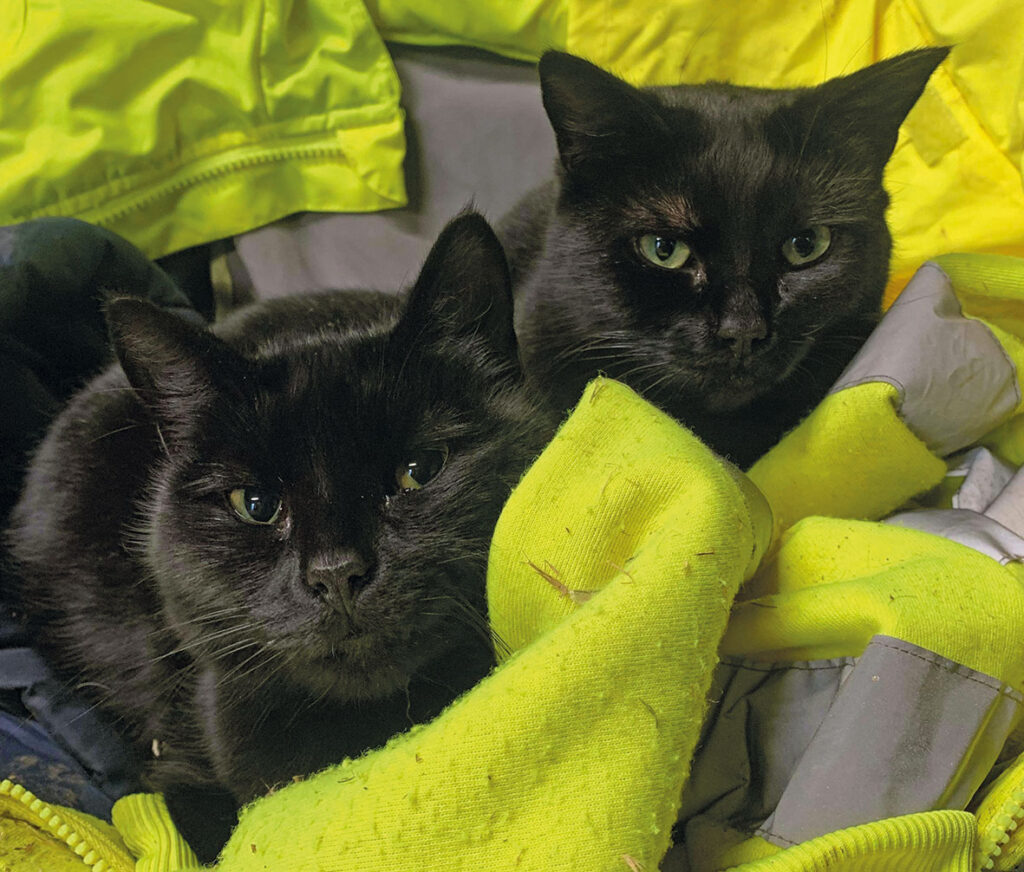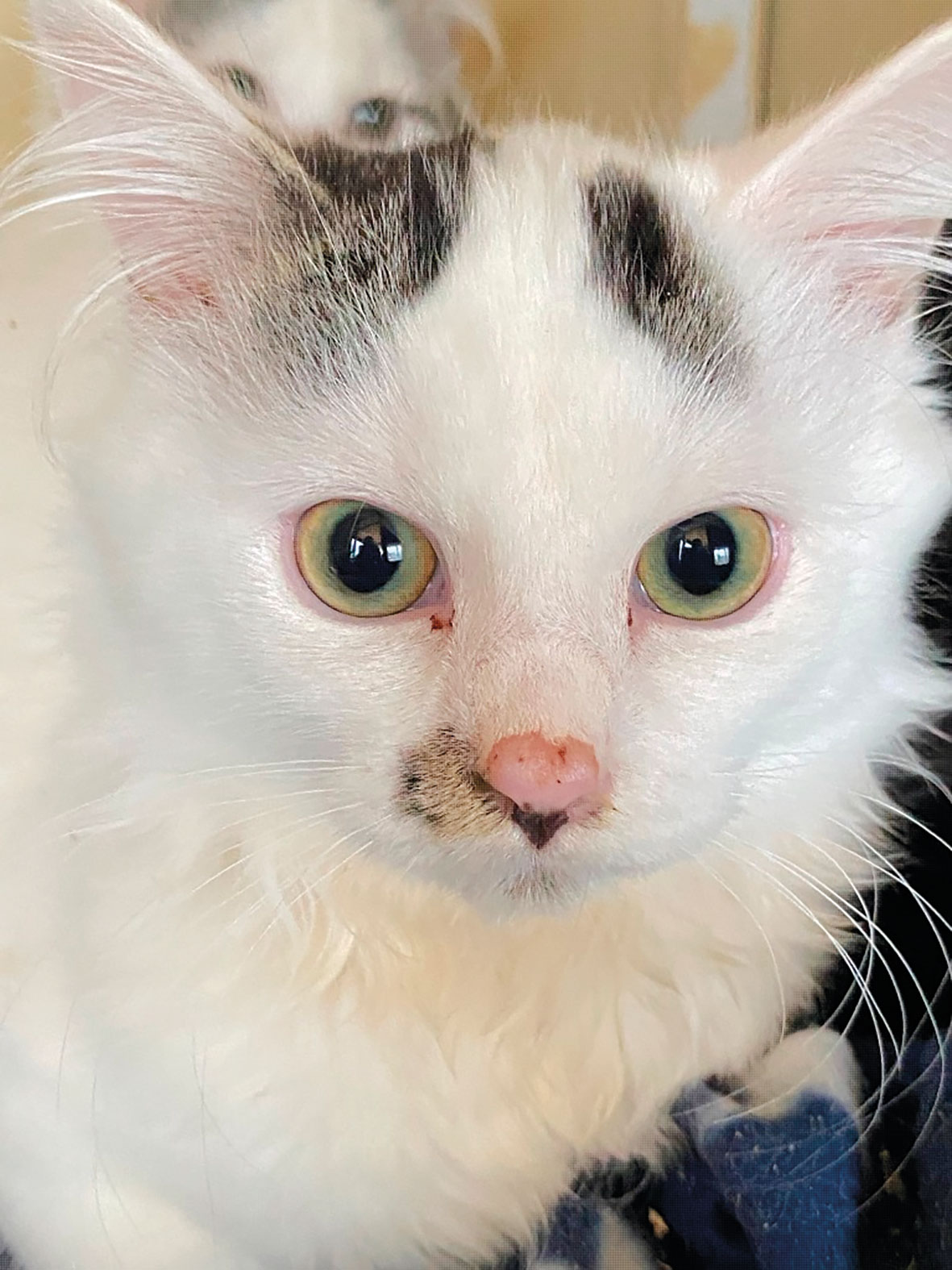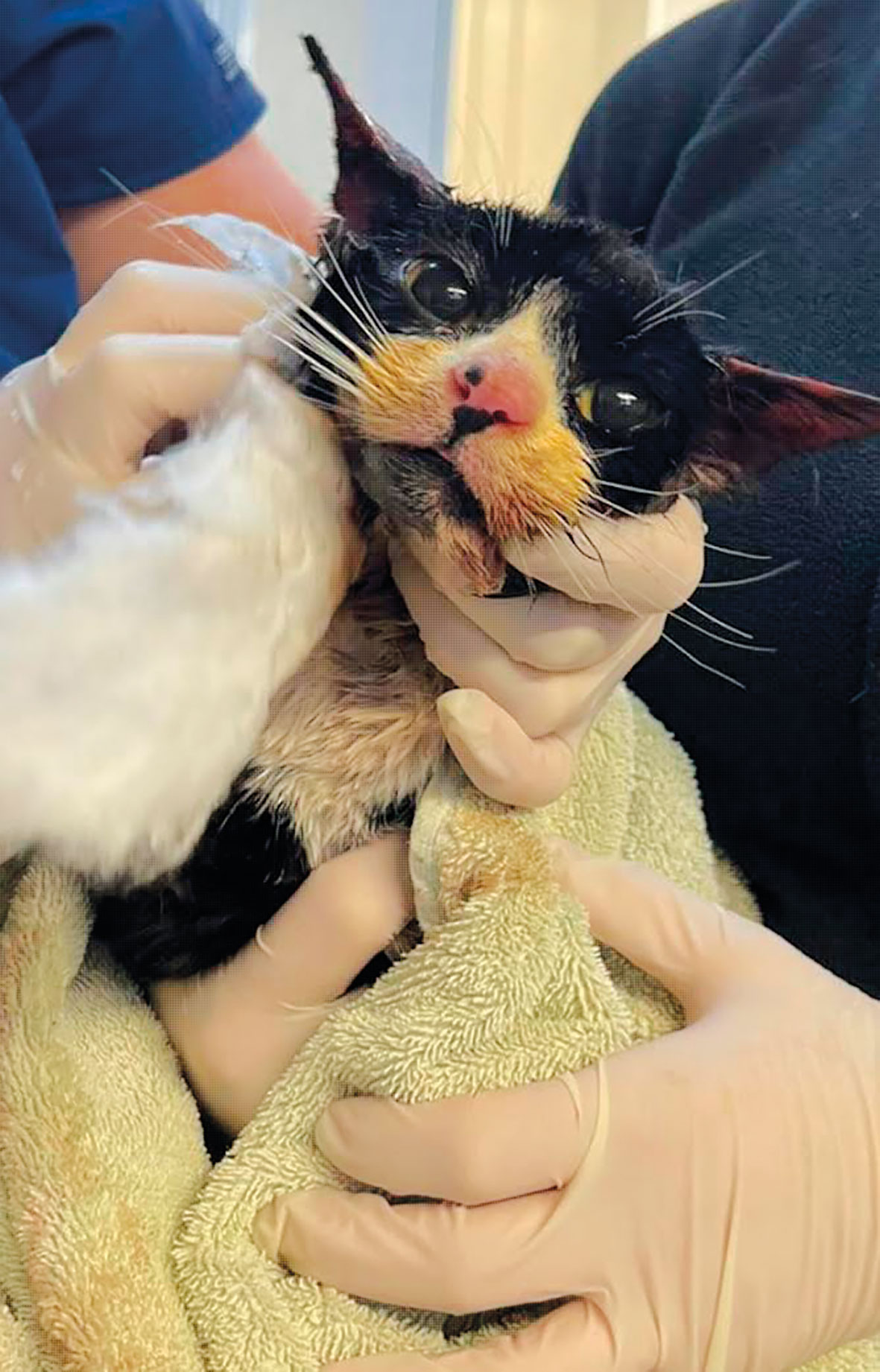How you can help prevent an MK cat-astrophe
Posted 23rd January 2023
Unlike our canine companions, pussy cats are altogether more independent, and we are used to seeing a swaggering tom mooching down the road.
But is that a much-loved moggy, or could it be one of the many stray cats that Milton Keynes has?
With numbers of strays and ferals on the increase, the Milton Keynes and North Bucks branch of the RSPCA wants you to help curb the numbers. Sammy Jones found out more…
The ‘problem’ of stray cats really is a big one; in 2022 the MK and North Bucks branch of the RSPCA has taken in close to 450 cats and kittens, and strays account for around half of that number.
“We live in this weird urban area with lots of green spaces in-between and we do have a relatively big feral cat population, which is something we are trying to help manage,” explains branch chair Gillian Scott.
“We’ve always had a problem with it, and there are lots of reasons why; people aren’t neutering their pets; the cost of living, and it can be harder to get them neutered because there is a significant shortage of vets across the UK.”
Sometimes, young cats escape the home before they are ready, and they don’t return – they become the next generation of street dwellers. And there is still a small element of irresponsible cat owners who let them breed, exacerbating the problem.

With your help the RSPCA wants to make a significant drop in those numbers.
“If people are aware of cats that are potentially living stray – perhaps a cat looks like it is injured or unwell or is in a dangerous situation, they should try to take that cat to a local vet. If they can’t do that, they should try to contact one of the local animal charities who can go out and trap the animal.
“If it’s not in immediate danger, looks well and like it could be owned, we can do things like supply paper collars to identify or come out and scan the animal, to determine if it is actually a stray or not.”
And those animals that are roughing it then get added to a waiting list to be brought in from the cold, or the local branch liaises with other rescue groups across the city to see who might have space to help.
And not every cat will go into a home – some are trapped, neutered and released again. The decisions are taken on a moggy by moggy basis.
“Milton Keynes creates lots of places for cats to set up and reproduce. We recently trapped some cats on Winterhill, and there were places where food was available, but it was obviously a less than ideal situation; mothers having kittens next to a horrendously busy dual carriageway.”
Male cats will wander and succumb to the perils of the roads, and there is an increased risk of fighting. If you’ve ever been awakened by two cats showing teeth and claws you’ll know that the noisy encounters are brutal. And those scraps increase the potential for infectious diseases; FIV is lifelong and compromising.
Feline immunodeficiency virus (FIV) is the cat version of HIV, and one of the most common infectious diseases in cats. It attacks the immune system, and normally harmless bacteria can cause severe illnesses. Transmission usually occurs through bite wounds from an infected cat.
And what about the little ladies?
“Female cats in heat attract males and often there’s this narrative that female cats are tarty and slutty, and really that’s not true,” Gillian stresses, “Putting it bluntly, you are letting a four month old cat out to effectively be attacked by your neighbours’ cat because someone else hasn’t neutered their animal. It sounds horrendous because it is, and labelling it as tarty is just not appropriate, but we seem to use this language of acceptance around this happening to young cats.
“The number of young cats coming into the branch who have kittens is difficult, and traumatic. The cats have hormonal responses which make them care for the kittens, but would you really choose for a young cat to become a mum at that age, and potentially become infected with things like FIV and FIP through that engagement with a potentially stray male?”
The nastiness can be passed to the kittens too: “It potentially gives them a life sentence.
They are still babies, they are children…”

It all sounds quite gloomy, but as mentioned, we can all play our part in turning the tide for the better. And there are other ways to help the charity in general.
“We are always looking for people to volunteer in a number of different roles, and we’ll be doing much more work on that imminently. People can donate funds to us, or they can donate items through our Amazon Wish List. They can come and volunteer with us and they can fundraise or volunteer in one of our shops,” Gillian invites.
If you can spare the time, the RSPCA can put it to good use!
Struggling with the cost?
Getting your cat neutered is important. It is a one off fee, but the cost can be anywhere between £40-£80 for a male cat, and £50 – £100 for a female.
Many animal charities offer financial assistance to those who need help.
Do the right thing and help avoid a cat-astrophe! Contact the RSPCA or Cats Protection to see how they can help you.
Why should I get my little boy snipped
It will stop him spraying to mark his territory, which is an unwanted smelly practice! He will also be less likely to wander and face all of the associated dangers, and getting him snipped will protect him from FIV.
Why should I get my little girl spayed?
The numbers of unwanted cats and kittens are huge, and rescue centres are bursting with felines all desperate to have a home of their own, but few takers. Getting your little girl spayed before she turns four months old is the responsible thing to do – and doing it at that young age means that she doesn’t get pregnant while she is still a kitten.
A troubling ‘tail’ with a Finn-tastic end!
One little stray in the city had hopes of filling his belly when he came across a discarded can, but he actually ended up with his head wedged inside the tin. It led to a weeklong cat hunt before specialist trappers from the RSPCA in Milton Keynes managed to catch him and release him from the horror.
“He was scared and went into fight or flight mode,” explained a spokesman, “Despite his desperate plight and not having eaten for days, he was determined to avoid us.”
Once he had been caught, the troubled little boy, now named Finn, was quickly taken to the vets where the can was removed. Finn was very underweight and was given fluids, antibiotics and pain relief.
He is on the mend, but the ordeal has made him hypersensitive to noise and he has cotton wool in his ears to assist recovery.
“He is doing well but has been wild for a little while, so we are trying to make him understand the benefits of being caught!” Gillian said.
Much more information is available by clicking to rspcamiltonkeynes.co.uk
